Fiat Chrysler Nears Settlement Over Dirty Diesel Allegations

Fiat Chrysler Automobiles is on the cusp of reaching a settlement with the U.S. Justice Department over undeclared emissions control software that allowed 104,000 diesel vehicles to pollute beyond legal limits.
The settlement is expected to include significant civil penalties and fines to account for the excess diesel emissions while also covering claims from the Justice Department, various U.S. states, and vehicle owners — similar to Volkswagen’s “Dieselgate” settlement. A final agreement could be reached any day now.
According to Reuters, FCA declined to comment on the matter this week, but previously denied any intentionally illicit behavior, noting there was never any attempt made to create software that would circumvent U.S. emissions regulations. Still, the company may have realized this assurance might not matter in the courts, as it set aside $815 million to cover potential costs associated with the case.
While not nearly as grand as Volkswagen Group’s emission snafu, FCA’s diesel discrepancy remains a serious issue. The Justice Department sought significant penalties for the automaker since filing its lawsuit in May of 2017. The outlet even noted that U.S. and California regulators stepped up diesel scrutiny after VW admitted to illegally installing software designed to fool emissions tests in 2015. Unchecked, the company was allowed to get away with it for years. As retribution, Volkswagen Group agreed to pay over $25 billion in the United States.
From Reuters:
Reuters reported in February that a settlement offer sent to Fiat Chrysler lawyers by the Justice Department in January 2018 would require the company to offset excess pollution and take steps to prevent future excess emissions. The letter included language that a settlement must include very substantial civil penalties.
The company and government lawyers have sparred for months over the size of penalties, [one source] said.
The Justice Department has a separate ongoing criminal investigation into the excess emissions. The U.S. Securities and Exchange Commission and a group of U.S. state attorneys general have also been investigating.
Helping to damn the Italian-American company are a series of emails from 2010, in which the person in charge of the controls and calibration for supplier VM Motori (which furnishes EcoDiesel motors for the Ram and Jeep brands) suggested Fiat Chrysler was interested in software that could detect test cycles in order to achieve — and advertise — superior fuel economy figures for specific models.
At the start of the year, the Justice Department offered Fiat Chrysler settlement terms that would include recalling all 2014-2016 models equipped with the EcoDiesel V6 in order to bring their emissions software into compliance. Regulators also demanded the automaker pay a “very substantial fine [that would] adequately reflect the seriousness of the conduct that led to these violations.” Some believed the automaker could face financial penalties amounting to over $4 billion.
FCA isn’t the only automaker in hot water over the finer points of emissions testing, however. Regulators have been probing diesel emissions in Daimler vehicles for some time. The German manufacturer said in financial filings it faces ongoing investigations from U.S. and German authorities into excess diesel emissions that could eventually lead to significant financial penalties and some recalls.
[Image: FCA]

A staunch consumer advocate tracking industry trends and regulation. Before joining TTAC, Matt spent a decade working for marketing and research firms based in NYC. Clients included several of the world’s largest automakers, global tire brands, and aftermarket part suppliers. Dissatisfied with the corporate world and resentful of having to wear suits everyday, he pivoted to writing about cars. Since then, that man has become an ardent supporter of the right-to-repair movement, been interviewed on the auto industry by national radio broadcasts, driven more rental cars than anyone ever should, participated in amateur rallying events, and received the requisite minimum training as sanctioned by the SCCA. Handy with a wrench, Matt grew up surrounded by Detroit auto workers and managed to get a pizza delivery job before he was legally eligible. He later found himself driving box trucks through Manhattan, guaranteeing future sympathy for actual truckers. He continues to conduct research pertaining to the automotive sector as an independent contractor and has since moved back to his native Michigan, closer to where the cars are born. A contrarian, Matt claims to prefer understeer — stating that front and all-wheel drive vehicles cater best to his driving style.
More by Matt Posky
Latest Car Reviews
Read moreLatest Product Reviews
Read moreRecent Comments
- Redapple2 UAW may have a valid issue. I ve been in plants that were bad. ....and i greatly dislike the UAW. I may need a 3/4 ton pick up. It will be a hecho Ram gas.
- TheMrFreeze So basically no manual transmissions in US cars after 2029.I just raised one finger in the general direction of NHTSB's main office. Guess which finger it is!
- TheMrFreeze Wife drives a Fiat 500 Turbo 5-speed (135hp vs. 160 in the Abarth), it's a lot of fun to drive and hasn't given us any headaches. Maintenance on it is not as bad as you'd think for such a cramped engine compartment...Fiat did put some thought into it in that regard. Back seat is...cramped...but the front is surprisingly roomy for what it is.I honestly wouldn't mind having one myself, but yeah, gotta have a manual trans.
- Bkojote Tesla's in a death spiral right now. The closest analog would be Motorola circa 2007.The formula is the exact same. -Vocal CEO who came in and took credit for the foundation their predecessor while cutting said efforts behind successful projects.-A heavy reliance on price/margin cuts and heavy subsidies to keep existing stock moving. The RAZR became a $99 phone after starting out as a $399 phone, the same way a Model 3 is now a $25k car.-Increasing focus on BS projects over shipping something working and functional to distract shareholders from the failures of current products. Replace "iTunes Phone" (remember that?) with "Cybertruck" and when that's a dud focus on "Java-Linux" the same way they're now focusing "Robotaxis".-Increasingly cut away investment in quality-of-ownership things. Like Motorola, Tesla's cut cut cut away their development, engineering, and support teams. If you ever had the misfortune of using a Motorola Q you're familiar with just how miserable Tesla Autopilot is these days.-Ship less and less completed products as a preview of something new. Time and time again at CES/Trade Shows Motorola was showing half-working 'concept' devices. The Cybertruck was announced 5 years ago yet functionally is missing most of its features- and the ones it has don't work. And I mean basic stuff- the AWD logic is embarrassingly primitive. A lot of Tesla hyperbole focuses on either he's a 4D-chess playing genius visionary or all of Tesla's being propped up by gov't mandates. But the reality is this company hasn't delivered any meaningful product evolution in the better half of this past decade.
- Pig_Iron Stellantis is looking for excuses to close plants. Shawn Fain just gave them one. 🐹



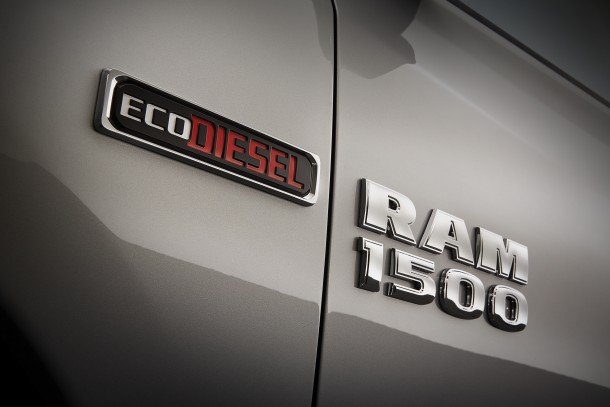























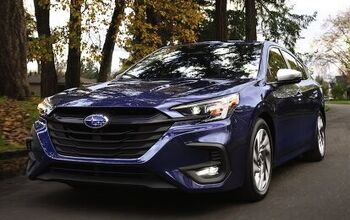

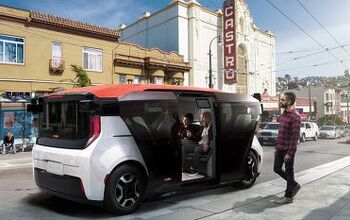


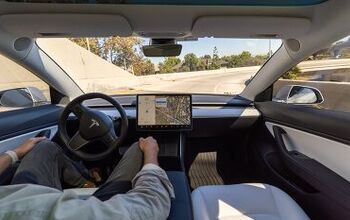
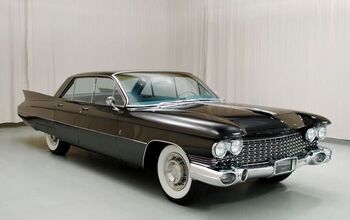
Comments
Join the conversation
I had defended FCA here on this matter, thinking that only VAG was cheating. It's very disappointing. But it looks like anyone doing diesel was looking for loopholes, and now the jig is up - and not just with passenger car diesels.
So will the trucks require registration under my name OR just a long term parking spot to become a beneficiary of this malicious class action.